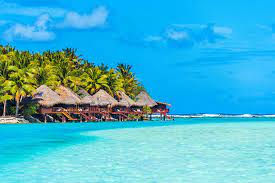
The Cook Islands are one of the few places on Earth that you can call a genuine paradise. The fifteen tiny islands scattered across the South Pacific Ocean between French Polynesia and American Samoa are a dream coming true for the traveler. With their volcanic mountains, luxuriant jungles, pristine powdery white sand beaches, crystal clear waters and wonderful coral lagoons overflowing with colorful tropical fish, the Cook Islands are natural jewels. Life here is peaceful and goes at its own pace. From wild nature to picturesque coffee plantations and traditional Polynesian villages, every island has its unique atmosphere awaiting to be discovered.
HEALTH INFORMATION
We make every effort to ensure that the information posted on our website is up to date and accurate according to the latest public health recommendations; however, it is impossible for us to make changes on a daily basis.
For the most current travel health recommendations, please call our clinic as make an appointment with one of our travel health professionals.
COOK ISLANDS – RECOMMENDED VACCINES
| Hepatitis A | Recommended for all travelers. |
| Hepatitis B | Recommended for all travelers. |
| Tetanus – Diphteria – Pertussis Vaccine | Tetanus: In exceptional circumstances (eg, stay in a region where access to health care is limited), for a person aged 18 years or older, 1 dose of DT may be given if 5 years or more has elapsed since the last dose. Otherwise, one booster dose at the age of 50*. Pertussis (Whooping Cough): 1 dose is recommended for pregnant women, for every pregnancy, regardless of immunization history and the interval since the last dose (betwen week 26 and 32). *Only applicable for Quebec. |
| Measles – Rubella – Mumps | Two doses recommended for all travelers born after 1970, if not previously given. |
| Flu – Influenza | Seasonal influenza occurs worldwide. The flu season usually runs from November to April in the northern hemisphere, between April and October in the southern hemisphere and year round in the tropics. Influenza (flu) is caused by a virus spread from person to person through coughing and sneezing or by touching infected surfaces. Everyone 6 months and older should get a flu vaccine yearly. Vaccine is recommended 14 days prior to departure. |
| Routine vaccines (dCaT, Polio, Meningococcal, Shingles, Pneumococcal, Hepatitis B, HPV, MMR & Varicella) | Recommended for all travelers |
| Typhoid fever | Recommended for most travelers, especially those who are staying with friends or relatives; visiting smaller cities, villages, or rural areas where exposure might occur through food or water; or prone to “adventurous eating” |
| Dengue Fever, Chikungunya and/or Zika | There are many illnesses that are transmitted via mosquito bites and unfortunately we do not have vaccines to protect us against most of them. It is important to inquire with your healthcare professional regarding the specific risks and the different illnesses presently in circulation. |
RECOMMENDED MEDICATIONS
| Antibiotics Traveler’s Diarrhea | Azithromycin or Suprax |
MEDICAL CARE
Good quality medical care is accessible in major cities in the Cook Islands, but is very limited elsewhere. The main hospital facility in the archipelago is the Rarotonga Hospital. In the event of serious sickness or injury, an air evacuation to another country is required.
In case of emergency in the Cook Islands, call 998.
Well stocked pharmaceutical establishments can be found in the Cook Islands. But if you require specific treatments or if you intend to go to remote areas, it is safer to bring your own medical supplies in sufficient quantities.
SECURITY ABROAD
CANADIAN EMBASSY
Emergency servicesIn case of emergency, dial:
- police: 999
- medical assistance: 998
- firefighters: 996
